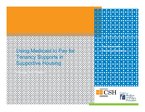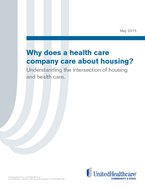0
Policy Brief
Community:
Oct 9, 2018
This brief highlights evidence on nutrition supports for families with young children and proposes a policy-focused research agenda designed to address knowledge gaps in two areas: (1) understanding disparities in participation in nutrition supports and (2) assessing strategies to increase access to nutrition supports and reduce nutrition disparities.
Authored by: Mathematica
Topics: Child welfare, Dual-generation, Early childhood, Food insecurity, Low-income, Nutrition, Research
 Shared by Mica O'Brien
Shared by Mica O'Brien
Mica O'Brien posted a
on Oct 22, 2018
This brief highlights evidence on nutrition supports for families with young children and proposes a policy-focused research agenda designed to address knowledge gaps in two areas: (1) understanding disparities in participation in nutrition supports and (2) assessing strategies to increase access to
0
Policy Brief
Community:
Oct 9, 2018
This brief highlights evidence on income support policies, and associated work requirements, for families with young children and proposes a policy-focused research agenda designed to address knowledge gaps in two areas: (1) understanding disparities in participation in income supports and (2) assessing innovative strategies to reduce disparities in income supports.
Authored by: Mathematica
Topics: Legislation & Policy, Low-income, Research, Workforce development
 Shared by Mica O'Brien
Shared by Mica O'Brien
Mica O'Brien posted a
on Oct 22, 2018
This brief highlights evidence on income support policies, and associated work requirements, for families with young children and proposes a policy-focused research agenda designed to address knowledge gaps in two areas: (1) understanding disparities in participation in income supports and (2) asses
0
Policy Brief
Community:
Oct 9, 2018
This brief highlights evidence about early care and education (ECE) access and presents a policy-focused research agenda designed to fill knowledge gaps in three areas: (1) documenting disparities in access to and participation in ECE, (2) identifying and assessing innovations to reduce disparities, and (3) identifying and testing strategies to scale up effective ECE programs.
Authored by: Mathematica
Topics: Early childhood, Education, Legislation & Policy, Low-income, Research, School-readiness
 Shared by Mica O'Brien
Shared by Mica O'Brien
Mica O'Brien posted a
on Oct 22, 2018
This brief highlights evidence about early care and education (ECE) access and presents a policy-focused research agenda designed to fill knowledge gaps in three areas: (1) documenting disparities in access to and participation in ECE, (2) identifying and assessing innovations to reduce disparities,
0
Policy Brief
Community:
Oct 9, 2018
Research shows that the earliest years of life are a critical period of human development. Young children’s earliest relationships and experiences have a strong influence on brain development and future health and well-being. Young children’s foundational relationships and experiences occur in the context of families and communities. Yet, low-income families—especially families of color and rural families—often do not have access to the basic necessities and resources to foster the nurturing experiences and stimulating environments that young children need to thrive. What is needed are policies that support low-income families to provide stimulating and nurturing environments to promote children’s healthy physical, socialemotional, and cognitive development and their future success in school and life.
Authored by: Mathematica
Topics: Child welfare, Dual-generation, Early childhood, Low-income, Research
 Shared by Mica O'Brien
Shared by Mica O'Brien
Mica O'Brien posted a
on Oct 22, 2018
Research shows that the earliest years of life are a critical period of human development. Young children’s earliest relationships and experiences have a strong influence on brain development and future health and well-being.
0
News Article
Community:
Oct 7, 2018
The HUB is finalizing rules that ban lying down and sprawling out on couches, sleeping for more than 30 minutes, using the restroom for cutting hair or bathing, and panhandling.
Authored by: Scott Greenstone for The Seattle Times
Topics: Homelessness, Pacific Northwest, Post-secondary, Youth
 Shared by Mica O'Brien
Shared by Mica O'Brien
Mica O'Brien posted a
on Oct 11, 2018
Scott Greenstone for The Seattle Times
The HUB is finalizing rules that ban lying down and sprawling out on couches, sleeping for more than 30 minutes, using the restroom for cutting hair or bathing, and panhandling.
0
News Article
Community:
Oct 9, 2018
About 6 percent of baby boomers and 17 percent of African American baby boomers have been homeless at some point in their lives, according to the first national study in decades to look at lifetime homeless rates. The study, released last month, suggests older black Americans are about three times more likely to experience homelessness than white Americans.
Authored by: Jeff Stein for The Washington Post
Topics: Homelessness, Housing, Racial inequalities, Research, Seniors
 Shared by Mica O'Brien
Shared by Mica O'Brien
Mica O'Brien posted a
on Oct 11, 2018
Jeff Stein for The Washington Post
About 6 percent of baby boomers and 17 percent of African American baby boomers have been homeless at some point in their lives, according to the first national study in decades to look at lifetime homeless rates.
0
Policy Brief
Community:
Oct 1, 2018
Authored by: SchoolHouse Connection
Topics: Child welfare, Early childhood, Education, Health, Homelessness, Low-income, Pre-natal
 Shared by Mica O'Brien
Shared by Mica O'Brien
Mica O'Brien posted a
on Oct 10, 2018
0
Policy Brief
Community:
This short document provides basic information to help housing and homeless assistance providers advocate with their families and youth for appropriate educational services, from birth through higher education. The rights and protections outlined here apply to all children and youth experiencing homelessness, as defined by the education subtitle of the McKinney-Vento Act.
Authored by: SchoolHouse Connection
Topics: Disabilities, Dual-generation, Early childhood, Education, Family engagement, Homelessness, Housing, Legislation & Policy, Low-income, Post-secondary, Youth
 Shared by Mica O'Brien
Shared by Mica O'Brien
Mica O'Brien posted a
on Oct 10, 2018
This short document provides basic information to help housing and homeless assistance providers advocate with their families and youth for appropriate educational services, from birth through higher education.
0
News Article
Community:
Oct 8, 2018
A strategy for community problem-solving does an extraordinary job at restoring our social fabric.
Authored by: David Brooks for The New York Times
Topics: Community development, Education, Partnerships, Place-based, Youth
 Shared by Mica O'Brien
Shared by Mica O'Brien
Mica O'Brien posted a
on Oct 10, 2018
David Brooks for The New York Times
A strategy for community problem-solving does an extraordinary job at restoring our social fabric.
0
News Article
Community: Postsecondary
Oct 2, 2018
An organization is using the influence that teenagers have on their contemporaries to help more students from low-income families gain college admission and student aid.
Authored by: David Bornstein for The New York Times
Topics: Education, Low-income, Mental health, Post-secondary, Stability, Youth
 Shared by Mica O'Brien
Shared by Mica O'Brien
Mica O'Brien posted a
on Oct 9, 2018
David Bornstein for The New York Times
An organization is using the influence that teenagers have on their contemporaries to help more students from low-income families gain college admission and student aid.
0
News Article
Community:
Oct 5, 2018
At a recent symposium convened by Capital One in Plano, Texas, practitioners, researchers, funders, business leaders, technologists, and other stakeholders discussed ways local leaders can harness technology and data to increase access to opportunity. This issue is particularly relevant in the Dallas metropolitan area, which is one of the country’s fastest-growing tech hubs yet still struggles with a lack of economic and racial inclusion.
Authored by: Aaron Shroyer, Solomon Greene, and Emily Peiffer for Urban Institute
Topics: Broadband, Low-income, Place-based
 Shared by Mica O'Brien
Shared by Mica O'Brien
Mica O'Brien posted a
on Oct 5, 2018
Aaron Shroyer, Solomon Greene, and Emily Peiffer for Urban Institute
At a recent symposium convened by Capital One in Plano, Texas, practitioners, researchers, funders, business leaders, technologists, and other stakeholders discussed ways local leaders can harness technology and data to increase access to opportunity.
0
News Article
Community:
Oct 3, 2018
For years, Dallas has poured millions of federal dollars into affordable housing, to little effect. But in May, the City Council unanimously passed a new comprehensive housing policy, a first for the city. The goal is to build 20,000 new homes — but only in select, pre-approved neighborhoods deemed ripe for revitalization.
Authored by: Teresa Wiltz for Stateline
Topics: Community development, Housing, Legislation & Policy, Low-income, Mobility, Racial inequalities, South
 Shared by Mica O'Brien
Shared by Mica O'Brien
Mica O'Brien posted a
on Oct 4, 2018
Teresa Wiltz for Stateline
For years, Dallas has poured millions of federal dollars into affordable housing, to little effect. But in May, the City Council unanimously passed a new comprehensive housing policy, a first for the city.
0
News Article
Community:
Oct 2, 2018
Students have around 60 programs at their disposal, from advanced manufacturing to emergency medical response.
Authored by: Heather Burian for CT
Topics: East Coast, Education, Food insecurity, Health, Low-income, Post-secondary, Youth
 Shared by Mica O'Brien
Shared by Mica O'Brien
Mica O'Brien posted a
on Oct 4, 2018
Students have around 60 programs at their disposal, from advanced manufacturing to emergency medical response.
0
News Article
Community:
Sep 27, 2018
Nationally, resources for providing families with housing assistance are inadequate. DC is piloting a new approach, the DC Flexible Rent Subsidy Program (DC Flex), to test whether shallow (smaller than the average subsidy, over a defined period) and flexible subsidies can help more families maintain affordable, adequate housing.
Authored by: Mychal Cohen and Josh Leopold for Urban Institute
Topics: Cost effectiveness, East Coast, Housing, Low-income, Research, Stability
 Shared by Mica O'Brien
Shared by Mica O'Brien
Mica O'Brien posted a
on Oct 4, 2018
Mychal Cohen and Josh Leopold for Urban Institute
Nationally, resources for providing families with housing assistance are inadequate.
0
News Article
Community:
Oct 1, 2018
Some places lift children out of poverty. Others trap them there. Now cities are trying to do something about the difference.
Authored by: Emily Badger and Quoctrung Bui for The New York Times
Topics: Child welfare, CLPHA, Community development, Criminal justice, Housing, Low-income, Metrics, Mobility, Racial inequalities, Research, Stability, Youth
 Shared by Mica O'Brien
Shared by Mica O'Brien
Mica O'Brien posted a
on Oct 1, 2018
Emily Badger and Quoctrung Bui for The New York Times
Some places lift children out of poverty. Others trap them there. Now cities are trying to do something about the difference.
0
News Article
Community:
Sep 22, 2018
For the Omaha refugee families removed from an apartment complex where city inspectors found gas leaks, vermin and other code violations, there were glimmers of progress Friday amid the uncertainty.
Authored by: Erin Duffy for the Omaha World Herald
Topics: Health, Housing, Immigrants, Low-income, Midwest, Safety
 Shared by Mica O'Brien
Shared by Mica O'Brien
Mica O'Brien posted a
on Sep 27, 2018
Erin Duffy for the Omaha World Herald
For the Omaha refugee families removed from an apartment complex where city inspectors found gas leaks, vermin and other code violations, there were glimmers of progress Friday amid the uncertainty.
0
News Article
Community:
Sep 25, 2018
In 17 years, the Family Independence Initiative has enrolled 3,000 families — four people per household on average — and is operating in 14 different cities across the country. Now the initiative is making a move into 10 neighborhoods across Chicago. With a $2.6 million backing from Google.org and the City of Chicago, the organization hopes to combat poverty and improve the quality of life for 1,000 families on the South and West sides by giving money directly to them while also strengthening their social ties.
Authored by: Manny Ramos for The Chicago Sun Times
Topics: Asset building, Low-income, Midwest, Workforce development
 Shared by Mica O'Brien
Shared by Mica O'Brien
Mica O'Brien posted a
on Sep 27, 2018
Manny Ramos for The Chicago Sun Times
In 17 years, the Family Independence Initiative has enrolled 3,000 families — four people per household on average — and is operating in 14 different cities across the country. Now the initiative is making a move into 10 neighborhoods across Chicago.
0
News Article
Community:
Jan 18, 2018
An estimated half of all college students struggle with food insecurity, even at elite flagship universities like the University of California, Berkeley, and selective private schools like Northwestern University. Former foster youth, L.G.B.T. students and students of color are at substantially increased risk. Food insecurity is strongly linked to lower graduation rates.
Authored by: Sara Goldrick-Rab
Topics: Low-income, Post-secondary, Youth
 Shared by Mica O'Brien
Shared by Mica O'Brien
Mica O'Brien posted a
on Sep 26, 2018
An estimated half of all college students struggle with food insecurity, even at elite flagship universities like the University of California, Berkeley, and selective private schools like Northwestern University. Former foster youth, L.G.B.T.
0
News Article
Community:
Sep 21, 2018
A children’s hospital in Columbus, Ohio, is trying to treat a difficult patient: Its own struggling neighborhood.
Authored by: Laura Bliss for CityLab
Topics: Affordable Care Act, Child welfare, Health, Housing, Low-income, Midwest, Partnerships
 Shared by Mica O'Brien
Shared by Mica O'Brien
Mica O'Brien posted a
on Sep 25, 2018
A children’s hospital in Columbus, Ohio, is trying to treat a difficult patient: Its own struggling neighborhood.
0
News Article
Community:
Sep 11, 2018
Harvey — and its record rains — is long gone. But life may never be the same for thousands of children who spent the past school year — and will spend the one that just began — without a home. Their schools have been rebuilt. Their lives have not.
Authored by: Kristine Phillips for The Washington Post
Topics: Child welfare, Education, Homelessness, Housing, Low-income
 Shared by Mica O'Brien
Shared by Mica O'Brien
Mica O'Brien posted a
on Sep 18, 2018
Kristine Phillips for The Washington Post
Harvey — and its record rains — is long gone. But life may never be the same for thousands of children who spent the past school year — and will spend the one that just began — without a home. Their schools have been rebuilt. Their lives have not.
0
News Article
Community:
Sep 12, 2018
As the devastating effects of the opioid crisis continue, a growing body of research supports the efficacy and safety of this sort of medication-assisted treatment (also called MAT) for drug recovery, when combined with psychotherapy. But the use of any of these medicines — a list that includes methadone and naltrexone, as well as Suboxone — remains frowned upon by most operators of sober living houses.
Authored by: Nina Feldman for NPR
Topics: Health, Housing, Substance abuse
 Shared by Mica O'Brien
Shared by Mica O'Brien
Mica O'Brien posted a
on Sep 18, 2018
As the devastating effects of the opioid crisis continue, a growing body of research supports the efficacy and safety of this sort of medication-assisted treatment (also called MAT) for drug recovery, when combined with psychotherapy.
1
News Article
Community:
Sep 11, 2018
San Francisco health officials working to end HIV infections and deaths in The City are zeroing in on the homeless population, where there’s been an uptick in new cases.
Authored by: Joshua Sabatini for
Topics: Health, Homelessness, Legislation & Policy, Low-income, Preventative care, West Coast
 Shared by Mica O'Brien
Shared by Mica O'Brien
Mica O'Brien posted a
on Sep 18, 2018
San Francisco health officials working to end HIV infections and deaths in The City are zeroing in on the homeless population, where there’s been an uptick in new cases.
1
News Article
Community:
Aug 19, 2018
A body of evidence points to a link between living in areas of concentrated poverty and health.
Authored by: Paul Chisholm for NPR
Topics: Child welfare, Community development, Health, Housing, Low-income, Medicaid / Medicare, Metrics, Partnerships, Racial inequalities, Safety
 Shared by Housing Is
Shared by Housing Is
Housing Is posted a
on Aug 20, 2018
A body of evidence points to a link between living in areas of concentrated poverty and health.
0
Policy Brief
Community:
Aug 9, 2018
Partnerships between medicaid and supportive housing providers
Authored by:
Topics: Cost effectiveness, Funding, Health, Legislation & Policy, Low-income, Medicaid / Medicare, Partnerships, Supportive housing
 Shared by Housing Is
Shared by Housing Is
Housing Is posted a
on Aug 9, 2018
Partnerships between medicaid and supportive housing providers
0
Policy Brief
Community:
Aug 9, 2018
In a post health care reform era, Medicaid programs need to build system capacity to effectively manage increasingly complex Medicaid populations while simultaneously seeking innovative solutions to reduce costs and improve access. As states are increasingly becoming more reliant upon managed care for complex populations – such as individuals in need of long-term services and supports, those with intellectual or developmental disabilities, individuals with severe and persistent mental illness, as well as children with special health care needs – the needs of these populations range far beyond traditional health care.
Authored by:
Topics: Funding, Health, Housing, Low-income, Medicaid / Medicare, Partnerships
 Shared by Housing Is
Shared by Housing Is
Housing Is posted a
on Aug 9, 2018
In a post health care reform era, Medicaid programs need to build system capacity to effectively manage increasingly complex Medicaid populations while simultaneously seeking innovative solutions to reduce costs and improve access.























 Shared by Housing Is
on Aug 20, 2018
Shared by Housing Is
on Aug 20, 2018

 Shared by Housing Is
on Aug 9, 2018
Shared by Housing Is
on Aug 9, 2018
 Shared by Housing Is
on Aug 9, 2018
Shared by Housing Is
on Aug 9, 2018





